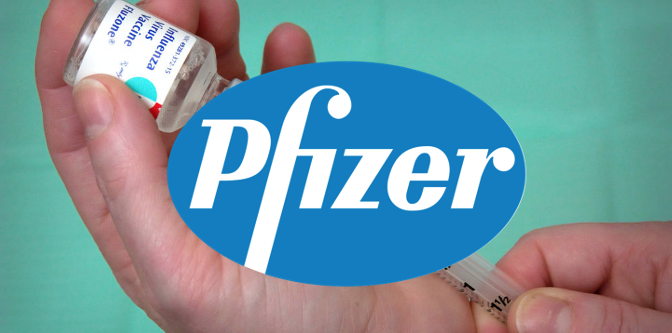Pfizer's COVID-19 vaccine's protection against severe infection remains high after six months, but declines for symptomatic infection overall. This is according to the findings of a study published by Pfizer itself.
Despite the decline of vaccine protection against symptomatic disease, efficacy is still considered high.
The published data comes at a time when Pfizer is pushing for booster shots to strengthen its COVID-19 vaccine. The U.S. government has been deliberating on whether boosters are necessary.
Pfizer COVID-19 Vaccine Protection Declines for Symptomatic Disease

The Pfizer COVID-19 vaccine's protection against symptomatic disease declines after a six month period. Despite the decline, its efficacy is still considered high.
According to The Verge, data published by Pfizer shows that the vaccine is 91% effective in general. It is strongest seven days after two months after the second dose, where the efficacy of the vaccine is at 96%.
The vaccine protection of the Pfizer vaccine drops to 90% four months after vaccination and then to 84% six months after vaccination.
Pfizer COVID-19 Vaccine Protection Remains High for Severe Cases
Such a drop is not seen in the data involving the Pfizer COVID-19 vaccine's protection against severe cases of the virus. According to the report by The Verge, a case is considered severe when "blood oxygen levels drop below 93 percent and heart and respiratory rate are elevated."
As far as severe cases are concerned, the vaccine efficacy of the Pfizer COVID-19 vaccine remains at 97% during the six months after the second shot has been administered.
Related Article: Pfizer/BioNTech COVID-19 Vaccine Effective Against New Variant, Study Shows
Pfizer's Call for Booster Shots
According to The Wall Street Journal, Pfizer is set to ask U.S. regulators to approve the use of booster shots next month. The company insists that booster shots are needed to strengthen vaccine efficacy against the ever-changing coronavirus.
While the U.S. government in general has been deliberating over the need to authorize boosters, there have been federal health officials who said that "boosters for the general population are unnecessary," per a report by The New York Times.
The Centers for Disease Control and Prevention (CDC) and National Institute of Allergy and Infectious Diseases (NIAID) Director Dr. Anthony Fauci said earlier this month that they don't think COVID-19 booster shots are necessary for now.
Experts have also pointed out that many people remain unvaccinated, questioning the need for boosters when the focus should be getting as many people vaccinated first.
The World Health Organization (WHO) slammed countries ordering booster shots, reiterating the fact that many governments around the world are still struggling to acquire vaccines for their citizens. The WHO has also emphasized the need for equitable access to COVID-19 vaccines.
The new data published by Pfizer, however, is seen to strengthen the company's call for an additional shot.
Also Read: COVID-19: New Study Says Third Booster Shot of mRNA Could Create Better Results
This article is owned by Tech Times
Written by Isabella James













